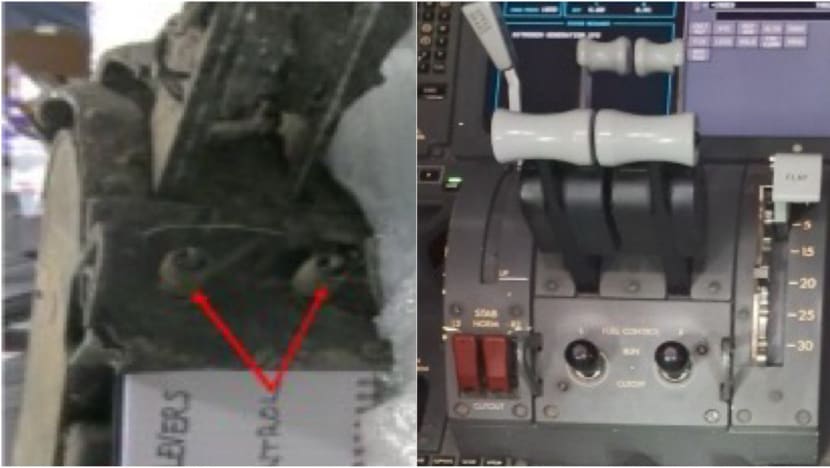

A preliminary report into last month's fatal Air India crash in Ahmedabad has deepened the mystery surrounding the disaster, leaving investigators to grapple with the question of whether pilot error or a technical fault led to the tragedy. The crash, which occurred on June 12, 2025, claimed the lives of 260 people.
The report, issued by India's Aircraft Accident Investigation Bureau (AAIB), revealed that the fuel supply to the Boeing 787 Dreamliner's engines was cut off moments after takeoff. Specifically, the fuel control switches in the cockpit were found in the "cutoff" position, starving the engines of fuel and causing the plane to lose thrust. The report also indicated that the flight lasted approximately 30 seconds from takeoff to crash.
What makes this discovery so perplexing is the nature of these fuel control switches. According to aviation experts, these are not simple on/off switches but rather a complex mechanism that requires a deliberate and conscious effort to move them to the "cutoff" position. One expert described them as metal switches with a knot that must be pulled and lifted over a metal obstacle before being released. This design makes it highly unlikely that the switches could be accidentally or inadvertently flipped.
Adding another layer of intrigue to the situation is the cockpit voice recording. In the recording, one pilot is heard asking the other why he "cut off" the fuel, to which the other pilot responds that he did not do so. This exchange suggests confusion and a lack of awareness among the pilots regarding the fuel supply cutoff.
The AAIB report does not draw any conclusions about how the switches ended up in the "cutoff" position. It does not indicate whether the action was intentional or accidental, nor does it suggest any technical malfunction that could have caused the switches to move on their own. At this stage of the investigation, the AAIB has not recommended any specific actions for Boeing 787-8 and/or GE GEnx-1B engine operators and manufacturers.
The revelation about the fuel supply cutoff has sparked intense speculation and debate within the aviation community. Some experts suggest the possibility of a deliberate act, while others point to the potential for human error, however improbable it may seem. Aviation expert David Learmount told Sky News that "it sounds deliberate", but also noted the possibility of pilots carrying out an incorrect action instead of what they should be doing.
Given the current evidence, it is difficult to definitively determine the cause of the Air India crash. The AAIB's investigation is ongoing, and investigators will likely focus on analyzing the flight data recorder, interviewing the surviving passenger, and examining the wreckage for any signs of mechanical failure or sabotage. Until more information comes to light, the question of whether pilot error or a technical fault led to the fuel supply cut off will remain a mystery.
Past Air India crashes have been attributed to various factors, including pilot error, instrument failure, and adverse weather conditions. For example, the 2010 crash of Air India Express Flight 812 in Mangalore was attributed to the captain's unstabilized approach and disregard for warnings from the first officer.